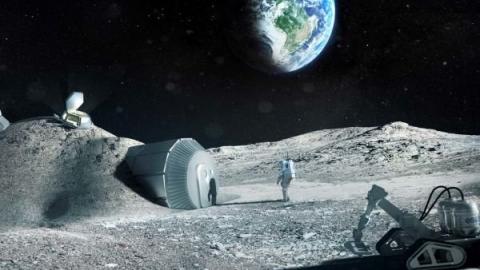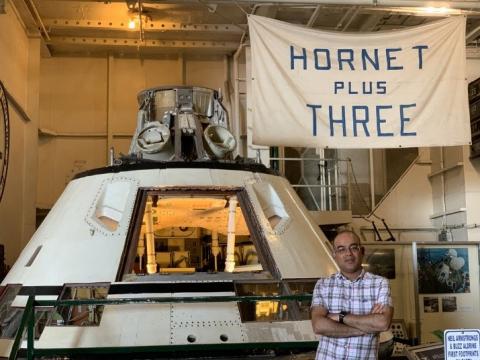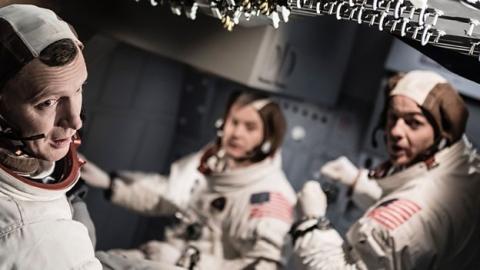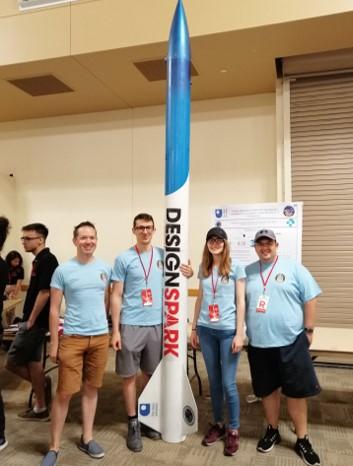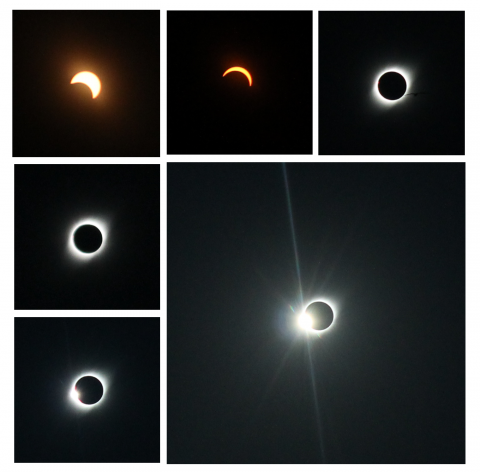News
Royal Scottish Geographical Society 'Inspiring People' talk series including Mahesh Anand
In February, Dr Mahesh Anand, Reader in Planetary Science and Exploration, will be speaking in Scotland as part of a series of talks entitled: Inspiring People, hosted by the Royal Scottish Geographical Society. Mahesh's talk will focus on Living on the Moon: The next 50 years. exploring how and why the Moon could play host to a sustainable human presence as we enter an era of ‘New Space’.
Tickets released for the next set of SPS OU@50 talks
We have an exciting set of talks coming up, presented by some of our academics in the School of Physical Sciences. These will be presented live on campus in Milton Keynes, but also available vis livestream for those who can't join in person. Eventbrite links have been set-up for registering for tickets. Please see below. More talks, to take place in October and November, will be announced here shortly. Follow us on Twitter for the most up-to-date information.
Sniffing the Solar System at Science Museum Lates in London
Geraint (Taff) Morgan and Simon Sheridan were at the Science Museum, London for Science Lates this week, which focussed on the Apollo landings. They took along their instruments that are used to sniff out gases and determine chemical signatures, the same instruments they plan to use in space.
Mahesh Anand celebrating the Moon landing anniversary on the USS Hornet
Mahesh Anand, Reader in Planetary Science and Exploration within the School of Physical Sciences, visited the USS Hornet on 24th July 2019 on the 50th anniversary of the Apollo 11 splashdown. USS Hornet is the ship that was used to recover the Apollo 11 capsule upon its splashdown in the Pacific Ocean on 24th July 1969, and is now moored off San Francisco bay on Alameda island where it has been converted into a museum. The photo shows a ‘broiler plate’ copy of the capsule that was used to practise Apollo 11 capsule recovery.
Launch of Chandrayaan-2: CEI involvement in mission science
The Centre for Electronic Imaging (CEI) in the School of Physical Sciences was involved in development of the X-ray detectors for the CLASS XRF instrument on Chandrayaan-2, which India will attempt to launch on Monday 22nd July at 09:14 GMT. The Chandrayaan-2 spacecraft contains a lunar orbiter and a lander for the Moon. CEI have also very recently been invited to collaborate over the coming year on supporting aspects of its calibration.
New OU/BBC programme ‘8 Days: To the Moon and Back’
We have a new OU/BBC programme ‘8 Days: To the Moon and Back’ airing on Wednesday 10th July on BBC Two at 9pm. Our own Mahesh Anand was the academic advisor to this co-production, a fascinating drama-documentary portraying in dramatic reconstruction the ultimate human adventure using previously classified cockpit audio recorded by the astronauts and original footage from the Apollo programme - combined with newly shot reconstruction of key moments and cinematic CGI.
The Open University at The Royal Society Summer Science Exhibition 2019
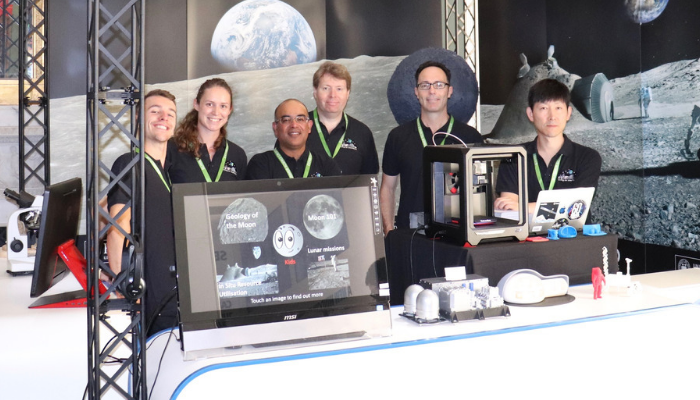
The “Living on the Moon” exhibit took place at the Royal Society Summer Science Exhibition last week and proved very popular, with an estimate of more than 10,000 visitors. The exhibit was created by a consortium of 5 UK institutions (The Open University, Birkbeck, Natural History Museum, Oxford University and Manchester University), bringing together lunar research from the past 50 years and showcasing cutting-edge technology that paved the way for future lunar exploration over the next 50 years.
OU Planetary Robotics Student Team compete in largest collegiate rocket competition in the USA
The OU Planetary Robotics Student Team recently competed in the largest and most prestigious collegiate rocket competition at Spaceport America in New Mexico, USA. Out of the 4 UK teams, they were the only team who achieved a "nominal" launch, meaning that launch and separation worked as intended. They were also the highest scoring UK team, coming 18th out of 46 in their category, and 38th out of 120 overall.
School Physicist of the Year
On July 2nd 2019 Physical Sciences at The Open University hosted the 'Schools’ Physicist of the Year' event. It was a highly successful and enjoyable evening, with the Berrill Lecture Theatre nearly full of the Year 10 award winners, their teachers and parents from 27 schools across the region.
Solar eclipse in Chile
Some of our staff and students happened to be in Chile at the same time as the solar eclipse in July, Research Fellow Jesper Skottfelt snapped these images to share with us. Absolutely beautiful
